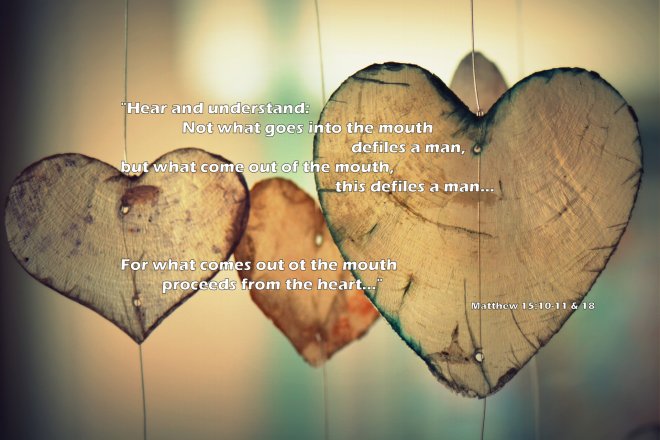
When I was a young, my momma used to say, “you can think whatever you’d like, just don’t say whatever you think.” It was one of those sayings that are passed down from mother to daughter for generations. She had heard from her mother who had heard it from her mother, and along with it, she’d also say, if you can’t say anything nice, don’t say anything at all!” If you think about it, its pretty practical advice, sage even – what I like to call Kansas farm sense – and usually not what a teenage girl wants to hear, but wise council never-the-less, straight from the book of proverbs.
Proverbs 18:8 tells us that a “gossip’s words are like choice morsels, they sink into the inmost being,” and 18:21 says, “The tongue has the power over life and death; those who indulge it must eat it’s fruit.” Let that wash over you for just a moment. Let it penetrate and take hold. What are some of the things that come out of our mouths? Are our words bitter, sour, vile and nasty filled with outrage and hateful barbs, or are they sweet, tender, gentle and caring filled with hope and loving kindness? The things we say matter, and whether we speak praise or slander, truth or lies, those “choice morsels” are the fruit we must eat.
In Matthew 15:11, Jesus says, “It’s not what goes into the mouth that defiles a person, but what comes out of the mouth – this defiles a person,” and in verse 18 he explains that whatever comes out of the mouth precedes from the heart. Think about that for a minute. It’s what we have been holding dear, what we have filled ourselves with that we carelessly let fly out of our mouths. Our words have power, power to build up or power to tear down. They also have consequences, and that’s why it behooves us to measure them carefully, to think before we speak, to understand that what we say and how we say it will come back to us, if for no other reason than to continually examine what we’ve been holding dearest in our hearts, and to know that we’ll may have to eat those words – the fruit of our tongues, which springs from our hearts.
~SLM

